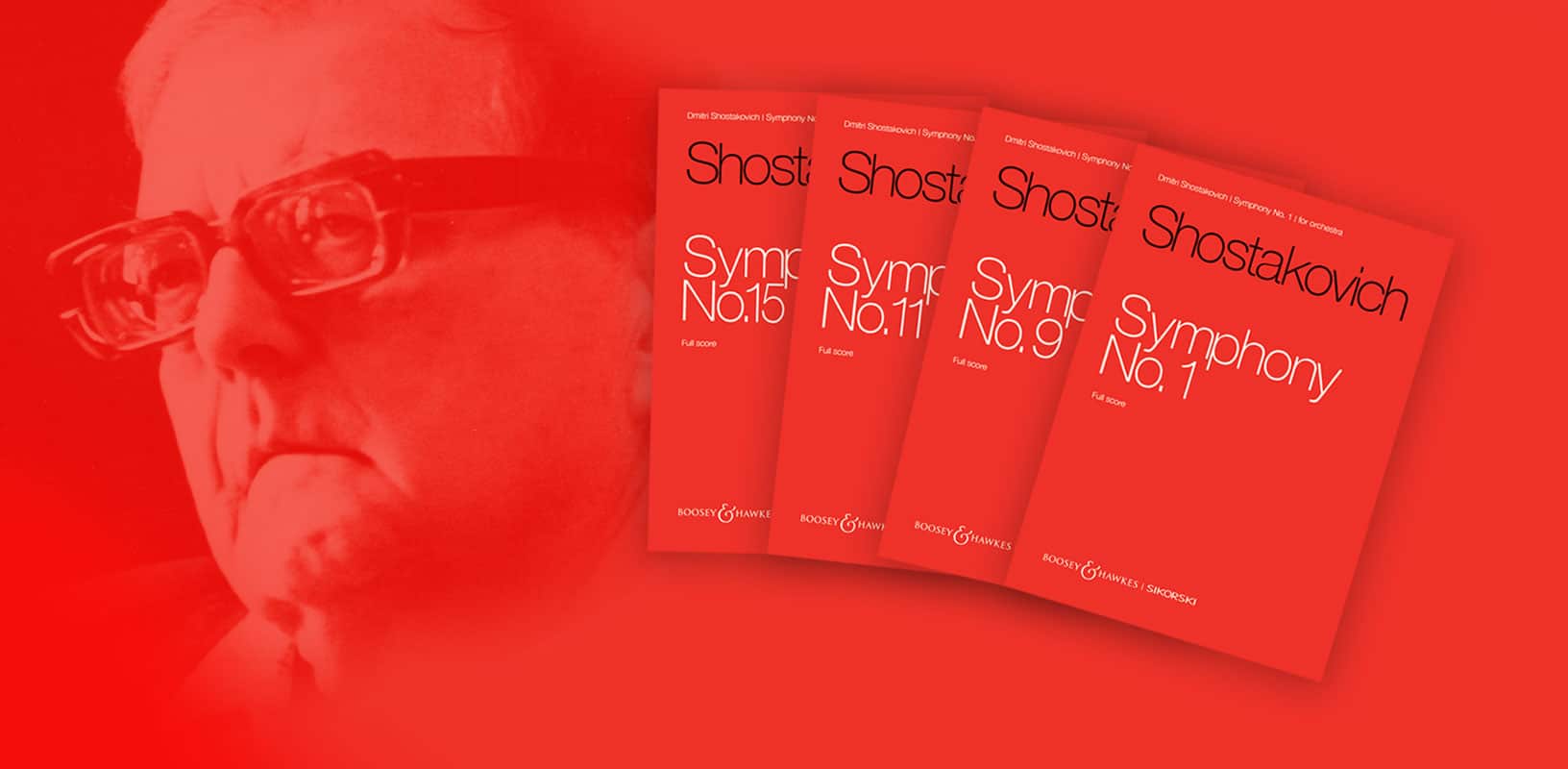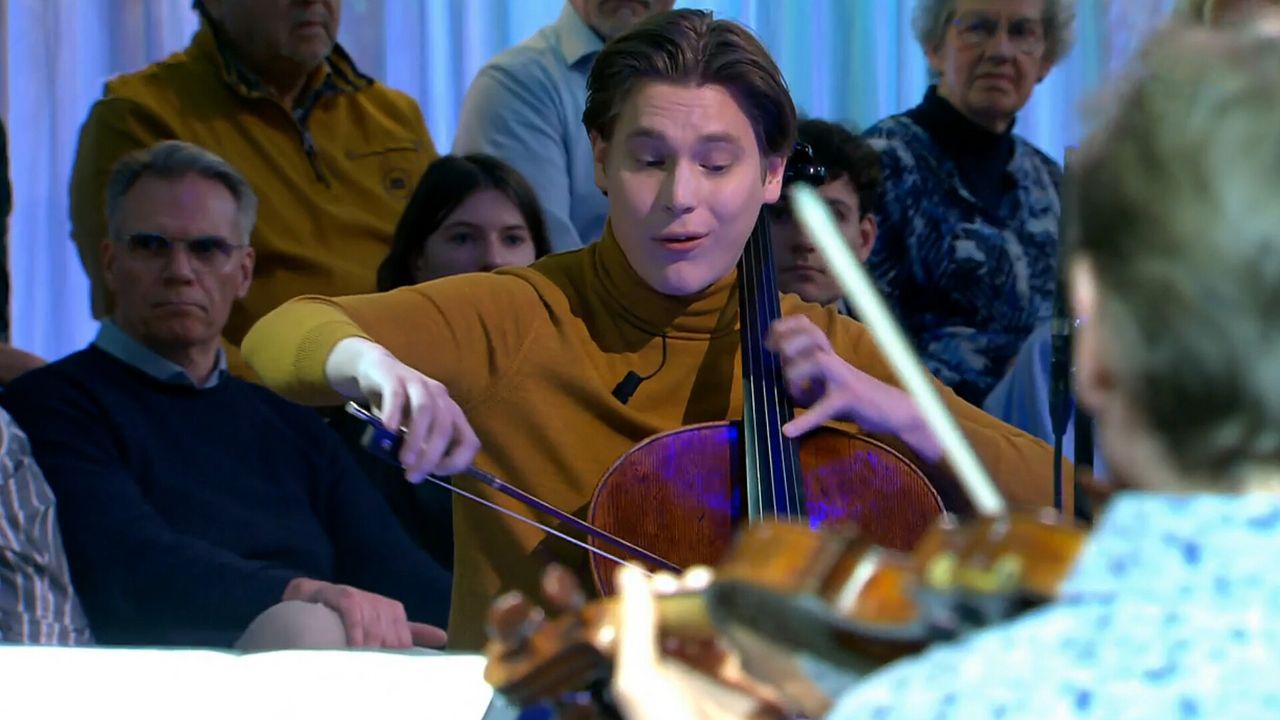All your Shostakovich scores are wrong. You need to buy again
OrchestrasThe merged publishing houses of Boosey & Hawkes and Sikorski are this month issuing ‘of a new revised and corrected edition of all 15 Shostakovich symphonies.’
The publishers are not specifying how serious the errors were in past scores from the Soviet and post-Soviet eras, but nobody wants to be caught playing a score that has been declared superannuated and error-strewn. Start saving now for the new edition






And the orchestral parts?
Unlikely that parts will be on sale until he falls out of copyright – probably 1 Jan 2046 or so.
Don’t mention Bruckner…
Or stravinsky!
Musikverlag Hermann Vienna is doing an amazing job with their Urtext Bruckner edition.
https://hermann.eu/
And despite all of the scholarship, conductors continue to use dubious editions, including the Haas 8. Go figure.
Stokowski is the only conductor to get the end of the 5th Symphony right.
12th February 1960, Philadelphia Orchestra.
It’s the greatest recording of the Shostakovich 5 you’ve never heard…
https://youtu.be/Z0vtuuBmINc?si=rVWS80RgMjJUEDZB
Just got a used copy for $6 on Amazon. Thanks!
It’s certainly classic Stokowski with many interesting choices, but hardly the best.
The radio broadcast of the 1960 return concerts have floated around online and on bootleg labels forever. In fact, Columbia released parts of the concerts on LP. I don’t get why there has never been an official release, unless the master tapes are lost or there are copyright issues.
I for one am certain there are better recordings I have not yet heard. Even the pitch in that recording isn’t very good, particularly in the strings – definitely not acceptable by today’s standards. Maybe it’s the best Shostakovich 5 recording from February 1960, but as far as I’m concerned it is mainly interesting for its historical significance. All he does with regard to the ending is choose fast tempi, which is not the norm today but also not exactly revelatory.
Horrible performance.
I have no problem with enjoying Stokowski‘s version, but if you think that he “gets it right”, then you don’t know how to read Shostakovich’s score. He most definitely and willfully gets it “wrong”, but Stokowski, god bless him, was a law unto himself. I’ve always wondered how it is that Shostakovich supposedly was a fan of Bernstein’s performance, which hauls around the tempo at the end of the fourth movement, nearly as much as Stokowski. Either he was being diplomatic and appreciative of a performance by western conductor or somehow he was OK with that kind of interpretation. If that’s the case, all bets are off. Mravinsky was one who did it as indicated and whether one likes its stubbornness or not I don’t think its authenticity can be disputed.
Orchestral parts are only available on hire for most people, so I don’t know when they will be corrected. I’m not holding my breath, based on my experience with other composers.
Oh really! And all 15 Symphonies will be completely error free will they? I remember when Boosey were working through new “corrected” editions of the Prokofiev Symphonies about 20 years ago. I think it was No 6 – I wanted the old, well used, and corrected set of parts from the Boosey hire library. But no, they assured me the new version would have all the old errors removed. So, with no choice I was supplied with the new set, complete with more new errors than had been in the old well used set. The inevitable happened and the rehearsal ground to a halt (Gergiev and the LSO) and I was summoned to the rehearsal hall to explain why. On a similar theme I remember once taking issue with Boosey over a small error in their score and parts of Stravinsky Rite of Spring. Oh no no, they assured me, why on earth do think that? Well, I said, we’re doing it with Boulez this morning and he happened to mention to me that Stravinsky had pointed out the small error to him personally. I could write chapters on the gulf between music publishers and their understanding of the needs of professional orchestras but I haven’t done that sort of work for many years and don’t want to cause a blood pressure rise. I occasionally still wake up in the morning and remember with relief I no longer have to deal with a “new edition”. They are designed to generate income for the publisher, not to make life easier for orchestras.
What was the marks/mistakes in Rite of Spring?
I can’t remember now but it was significant enough to stay in the parts and be incorporated at all subsequent performances.
Boulez mentioned that some bar (marks) are missing: not even Stravinsky had noticed !!
You evoke many memories my old friend! And whose fault was it? The librarian!
Greetings Chris! I still have bad dreams about Boosey, Hope you are well.
Wait
Wasn’t it your job to prevent the rehearsal from grinding to a halt?
Asking as a retired librarian.
No. It was the responsibility of the publisher to provide a reliable set of parts of a piece that had been performed for several decades worldwide. Were you a librarian of a professional orchestra?
And charge three times as much.
Hopefully the parts will at least be clean and legible. My community orchestra has gotten parts from Boozy that had (wrong) transpositions written over every single note, in gawdawful manuscript, or so fragile you couldn’t erase all the bad markings and wrong transpositions. More than once I illegally downloaded the part from IMSLP so I would have a useable part. (Romeo and Juliet Suites of Prokoffieff)
It’s not even as if the old ones are out of copyright yet, is it? (Maybe it is thanks to some wrinkle somewhere; now that would be interesting.)
I would not mind about it. Dmitri S. used to spread “wrong” notes all around his works to sound “modern”. Revised scores will probably just provide revided “wrong” notes.
*sighs*
*breaks out wallet*
I hope it’s worth the time and money…lots of money. It’s terribly expensive to engrave new scores and parts and then print them. To sell how many copies? I would be interested in seeing a new edition of the 1st, 5th and 9th. But 2 &3? Who cares? I hope they get around to new editions of some Prokofiev, Khachaturian, and especially the Borodin 2nd.
Do publishers engrave scores anymore? Just asking.
Engrave new scores? What century do you live in? Caxton was alive in your day, was he? Many scores are computer generated these days as the source for reproduction and printing.
If you want a composer whose printed editions are littered with errors, look at Enescu.
Music is no longer engraved. Finale or Sibelius, then converted to pdfs for printing. The only expense is time.
I hear they’re bringing out a corrected version of Cage’s 4’33” shortly
Well it’s about time.
I’m surprised nobody’s heard anything about it
You can’t leave these things to chance.
There was an excellent and scholarly edition of full scores produced in Moscow which, because of the war and sanctions is suddenly impossible to get hold of in Europe. I think that is why this edition has been produced.
The binding isn’t the finest however!
Easy money. You make errors and force people to rebuy.
What’s the point of spending all that money when most orchestras have old Kalmus reprints that work just fine. If they aren’t as mistake-free as the new editions, so what? What percentage of our audiences will notice or even care? Just get the errata list or just get the new score and fix your old parts. You’ll save tons of money.
They’re actually printing these out?
I’d be curious to know the numbers involved and how this ever makes money.
How about just a couple pages of “errata”?
It will be compatibile with the “blue” Shostakovich edition.
Similarly the scores of Leoš Janáček were riddled with errors or only available in arrangements such as those by Kovařovič, Chlubna, or Talich, but at least the old Supraphon editions were usable if one knew what details needed to be fixed (such as based on the experiences of conductors like Mackerras who had been studying manuscripts and performing these works for decades). Then along came a new younger generation of musicologists with differing opinions and a need to make their name (and income) with new editions. And now the new Janáček editions are riddled with new and different errors. For example, when Universal Edition published the first new vocal score to the 1908 version of Jenůfa, it had a computer glitch that caused most of the key signatures to not appear, and thus nearly every page was full of wrong notes. The newest reprints have still not corrected everything, and it is often easier to use an old set of parts from Prague for some Janáček works that have at least been corrected by hand.
I agree 100% with your post. It reminded me that years ago I got sent a set of orchestral parts of Žárlivost by a visiting conductor. The set of parts had been extremely heavily edited and changed by Mackerras. It was totally accurate but a complete mess and difficult to read so I offered to do a fresh set for the conductor using Sibelius software. It was error free at the first rehearsal, and the performance extremely well received. The point I am making is not that I am an accurate music copyist but twofold: Academic editions are all well and good but there is nothing so useful as a new set of parts that are 100% accurate at first play through. This is perfectly possible – I have seen it many times by the extraordinary copyists who work on film scores creating parts for recording sessions. And the second point is that the individuals who prepare these new editions are rarely present and accountable at their first use/rehearsal of the piece.